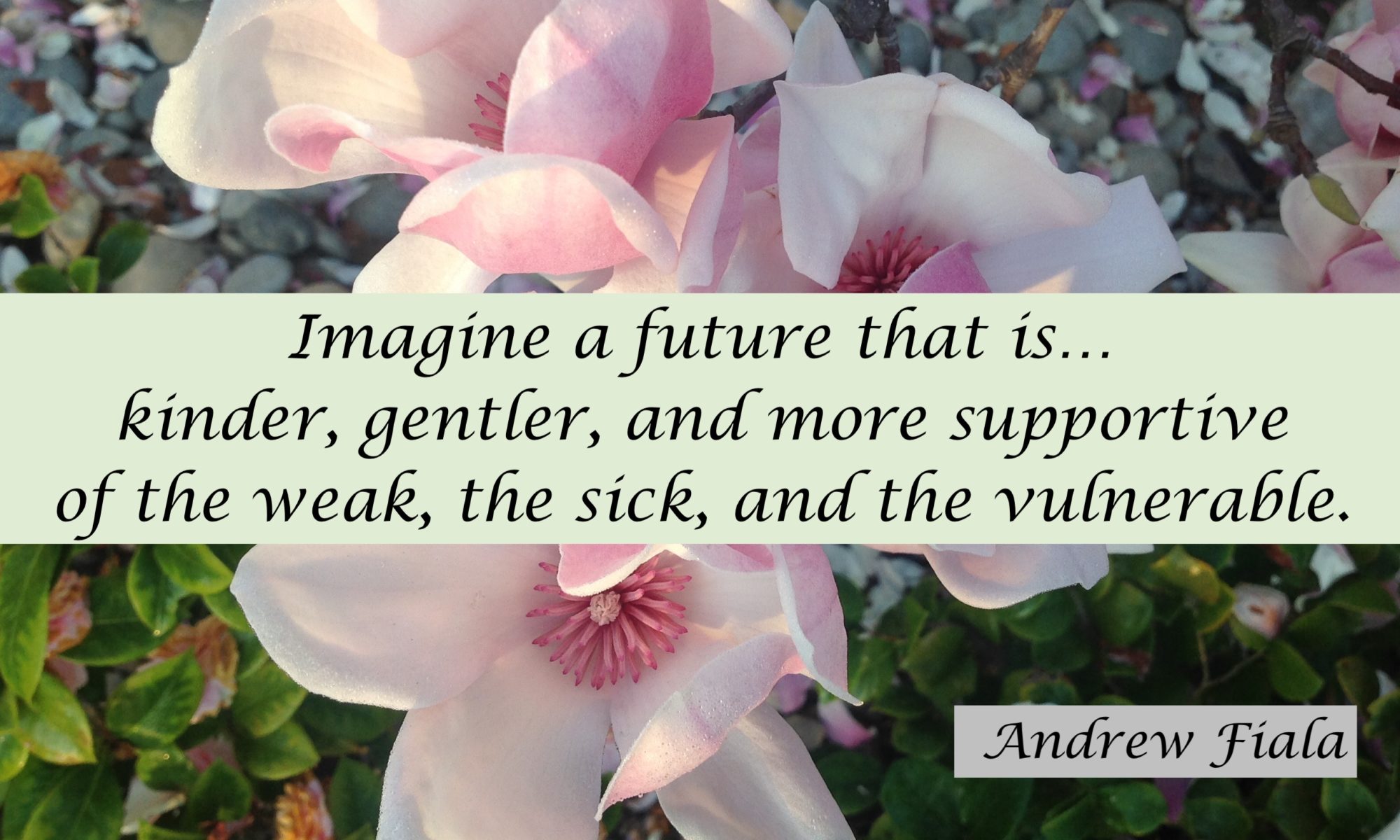The president wants to resurrect the economy by Easter. The scientists say it is too soon to get back to normal. But is getting back to normal really the solution?
Easter is a celebration of transformation. Maybe we should imagine a transformed economy on the other side of the corona crisis. We could even imagine the kind of economy that Jesus would hope for: an economy that prioritizes caring for the poor, the sick and the downtrodden.
The government is going to give direct handouts to people and extend unemployment benefits. Now is a good time to consider the idea of universal basic income. The stock market collapse is killing people’s retirement savings. Now is a good time to imagine how we might ensure a decent retirement for everyone. The pandemic also gives us a reason to consider disparities in public health and access to health care. And social distancing is an opportunity to rethink making a living and living well.
Henry David Thoreau said that there was more to life than making a living. He asked us to imagine “how to make getting a living not merely honest and honorable, but altogether inviting and glorious.” It may be too much to ask for an economy that is honest, honorable, and glorious. But we could benefit from a less materialistic approach to life.
The frantic pace of consumer society helped propel the pandemic. In a simpler time, people lived in small towns and villages, more in tune with nature, more connected to friends and family. A more localized economic model might impede future pandemics.
But reverting to pre-industrial life is not a viable solution. Instead of going back, let’s imagine how we might leap forward. A new vision of human life is made possible by the infrastructure that is helping us through this crisis.
People have rapidly shifted to working remotely. A generation ago, this would not have been possible. Universities have quickly gone online. Students have vacated dorms and professors teach from home. People don’t waste time commuting. Pollution is down as a result. Perhaps we have stumbled upon a new paradigm in business and education.
We are adapting in other ways. This week a couple in Green Bay, Wisconsin got married. Because of social distancing they had to invite their friends to participate via Facebook Live. That’s a cool idea, facilitated by technology. We are rapidly evolving how we work, play, learn, and love.
Or consider shopping and entertainment. The home delivery economy is thriving. There is a surge in grocery deliveries and restaurant carry-out. Movie theaters are closed. But we’ve got big TV’s and streaming content. Perhaps we’ll exit this crisis with new habits of consumption and amusement.
We may also reconsider the extent to which shopping and entertainment drive our economy and daily lives. This viral sabbatical provides an opportunity to spend more time with family, to re-learn the art of conversation, and to rediscover simpler pastimes, such as reading and playing cards. In my neighborhood, more people are taking walks with their families. It would be great if some of these new habits hung around.
But long walks and card games are not the only solution. The younger generation already spends a lot of time online chatting and gaming. Old folks have been forced to join in. Vulnerable and isolated oldsters need to turn to technology to keep in touch with friends and family. Social distancing will drive us further toward electronic social networking.
These are interesting times. Crises create opportunities for innovation. We need a vision of a post-corona economy that is not simply a return to normal. A new normal can build upon what we’ve discovered under quarantine about making a living and living well. Let’s imagine a new economy that conserves earth resources, avoids future pandemics, and enhances spiritual and mental health.
It may seem too soon to talk about life after corona. The scientists tell us it is too soon to reopen the economy. But now is the time to imagine a post-corona future that is kinder, gentler, and more supportive of the weak, the sick, and the vulnerable. Let’s not resurrect bad habits. Instead, let’s seek transformation and renewal.


